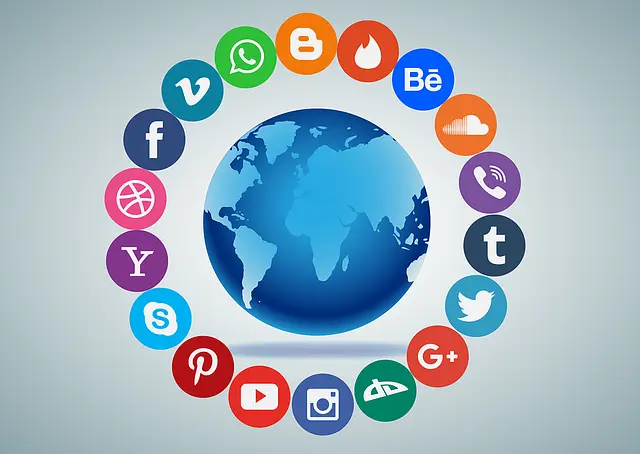Let’s do Digital Marketing with BajithaVikas
Digital Marketing Strategist in Dubai
Get to Know Me
Hey, Bajitha Here….
A certified Digital Marketing Strategist proudly based in Dubai. Career shift was my best decision! I hold a Master’s degree in Computer Applications and have a keen interest in the dynamic world of Digital Marketing. Currently enhancing my skills through a comprehensive course at CDA. Aspiring to become a Digital Marketing Strategist in Dubai, I focus on mastering the latest trends, tools, and techniques to drive growth and success for business in the digital age.
Join me on this exciting career path, dedicated to transforming into impactful-marketing solutions. Let’s connect your digital presence together!
FAQ
Digital marketing and traditional marketing differ in several key ways, that are : Channels and Platforms, Targeting and Reach, Cost, Measurement and Analytics, Interactivity, Speed and Flexibility, Personalization, Longevity and Accessibility.
Digital uses online platforms (social media, websites), while traditional uses offline media (TV, print). Digital allows precise audience targeting; traditional has broader, less specific reach. Digital is often more cost-effective and flexible; traditional can be more expensive. Digital provides detailed, real-time analytics; traditional relies on indirect metrics. Digital enables two-way communication; traditional is mostly one-way. Digital campaigns can be quickly launched and adjusted; traditional takes longer to plan and execute. Digital offers tailored content; traditional messages are usually more general.
Measuring the success of a digital marketing campaign involves tracking various metrics and key performance indicators (KPIs) relevant to your campaign goals. Here are some essential metrics to consider:
- Traffic: Website visits and sources.
- Engagement: Click-through rates, time on site, and bounce rates.
- Conversions: Conversion rates and cost per conversion.
- Revenue: ROI and customer acquisition cost.
- Social Media: Likes, shares, comments, and follower growth.
- Email: Open rates, click-through rates, and unsubscribe rates.
- SEO: Keyword rankings and organic search traffic.
- Paid Ads: Cost per click and ad impressions.
SEO (Search Engine Optimization) is the practice of optimizing a website or web content to improve its visibility and ranking in search engine results pages (SERPs). The goal is to attract more organic (non-paid) traffic from search engines like Google.
Increases Visibility helps your site appear higher in search results. Drives Traffic attracts more visitors to your site. Cost-Effective offers a cheaper long-term strategy than paid ads. Builds Credibility higher rankings build trust with users. Enhances User Experience improves site usability. Gives a Competitive Edge helps you stand out from competitors. Provides Long-Term Benefits continues to attract traffic even after efforts stop.
Staying updated with the latest digital marketing trends involves a mix of following reliable sources and actively engaging with the marketing community. Here’s how you can stay informed: Subscribe to Newsletters from sites like HubSpot and Moz. Follow Blogs read industry leader blogs. Attend Webinars and Conferences or new insights and strategies. Join Professional Groups n LinkedIn and forums. Use Social Media follow thought leaders and agencies. Read Reports from sources like Gartner and eMarketer. Experiment test new tools and techniques. Continuous Learning take online courses and certifications.
A PPC (Pay-Per-Click) campaign is a form of online advertising where advertisers pay a fee each time their ad is clicked. Essentially, you’re buying visits to your site rather than earning them organically.
- Ad Placement: Ads appear on search engines or social media.
- Bidding: Advertisers bid on keywords or audience segments.
- Cost: You pay only for clicks, not ad views.
- Targeting: Allows precise audience targeting.
- Goals: Aims to drive traffic, generate leads, or boost sales.
- Analytics: Tracks ad performance and metrics.
Creating a digital marketing plan involves several key steps. By following these steps, you can develop a structured and effective digital marketing plan.
- Define Goals: Set clear objectives.
- Identify Audience: Know your target customers.
- Conduct SWOT Analysis: Assess strengths, weaknesses, opportunities, and threats.
- Analyze Competitors: Study their strategies.
- Choose Channels: Select platforms (e.g., social media, SEO).
- Develop Content Strategy: Plan your content and publishing schedule.
- Set Budget: Allocate funds and resources.
- Create Timeline: Establish a campaign schedule.
- Implement and Monitor: Launch and track performance.
- Optimize: Adjust based on results.
Why Me ?
As a freelance Digital Marketing Strategist in Dubai, my role involves a wide range of responsibilities to enhance our company’s online presence and achieve our marketing objectives.
I conduct comprehensive market research to understand our target audience, market trends and competition. I analyze data to identify opportunities and threats in the digital landscape. By doing Market Research and Analysis like this, I get a complete structure. I create and implement effective Digital Marketing Strategies that align with our company’s goals. I develop campaigns for various digital channels, including social media, search engines, email marketing, and content marketing, this is my Strategy Development.
I plan and manage content creation and distribution across various platforms. I ensure that content is optimized for search engines (SEO) and engaging for our target audience. Contend strategy done through this way. I oversee and execute digital marketing campaigns, ensuring they are delivered on time and within budget. I monitor and adjust campaigns to maximize performance and return on investment (ROI).
I use analytics tools to track the performance of our digital marketing activities. I prepare detailed reports on campaign performance and make data-driven recommendations for improvements. I implement search engine optimization (SEO) strategies to improve our organic search rankings. I manage search engine marketing (SEM) campaigns, including pay-per-click (PPC) advertising.
I develop and execute social media strategies to increase brand awareness and engagement. I monitor social media channels and respond to customer inquiries and feedback. I work closely with other departments such as sales, design, and content teams to ensure cohesive marketing efforts. I coordinate with external agencies and vendors when necessary. I keep up with the latest trends, technologies, and best practices in digital marketing. Attend industry events, webinars, and training sessions to continuously enhance my skills and knowledge. I implement and manage CRM systems to track customer interactions and optimize customer relationships.
Digital Marketing Services

Digital Marketing Blogs

Social Media Marketing

Search Engine Optimization

Google Ads

Web Development

Content Marketing
Voice Search and Smart Speakers in Digital Marketing
Voice search and smart speakers are set to play a significant role in digital marketing in 2025. As technology continues to evolve, these tools are transforming how consumers interact with brands and how businesses approach their marketing strategies. Traditional SEO practices will need to adapt to accommodate voice search queries, which are typically longer and more conversational than typed searches.
Securing featured snippets will become more critical, as voice assistants often pull responses from these snippets to answer queries. Content will need to be more conversational and direct, answering specific questions users might ask their smart speakers. Creating detailed FAQ pages that anticipate common voice search queries will help in capturing voice search traffic. Emphasis on long-tail keywords that mimic natural speech patterns will be essential for capturing voice search traffic.

Voice-activated ads will become more prevalent, providing personalized and interactive experiences for users. Brands will need to streamline the user experience to facilitate easy and secure transactions via voice. New tools and metrics will emerge to track and analyze voice search data, helping marketers understand user behavior and preferences. Voice search data will provide deeper insights into consumer habits, preferences, and pain points, allowing for more personalized marketing strategies.
Advanced AI and machine learning algorithms will enhance the accuracy and functionality of voice search, providing more relevant and precise responses. Integration of voice search with AR could offer immersive experiences, such as voice-guided shopping or interactive product demonstrations.
In 2025, voice search and smart speakers will be integral to digital marketing strategies, driving innovation and shaping how brands connect with consumers. Businesses that adapt to these trends and optimize their strategies for voice technology will be well-positioned to thrive in the evolving digital landscape.
